The eclipse is over. Now what should you do with your glasses?
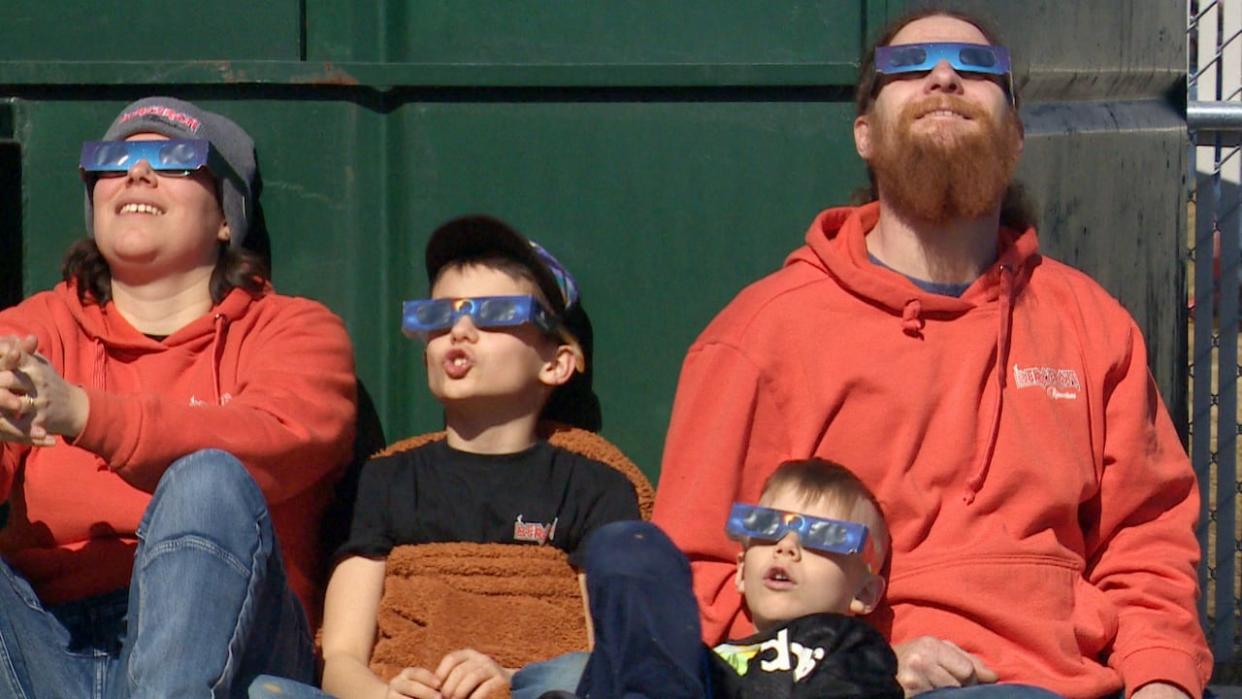
Cardboard glasses with black lenses were a hot commodity in the days leading up to Monday's solar eclipse.
As April 8 drew near, the protective eyewear became hard to find. And some people even worried the ones they bought weren't legitimate.
The eyewear allows people to look at the eclipse when the sun isn't totally covered. Staring at the exposed sun could otherwise cause eye damage.
Moncton resident Diani Blanco said she was driving with her family to view the eclipse on Monday when they started talking about how lucky they were to have eclipse glasses to experience the event.
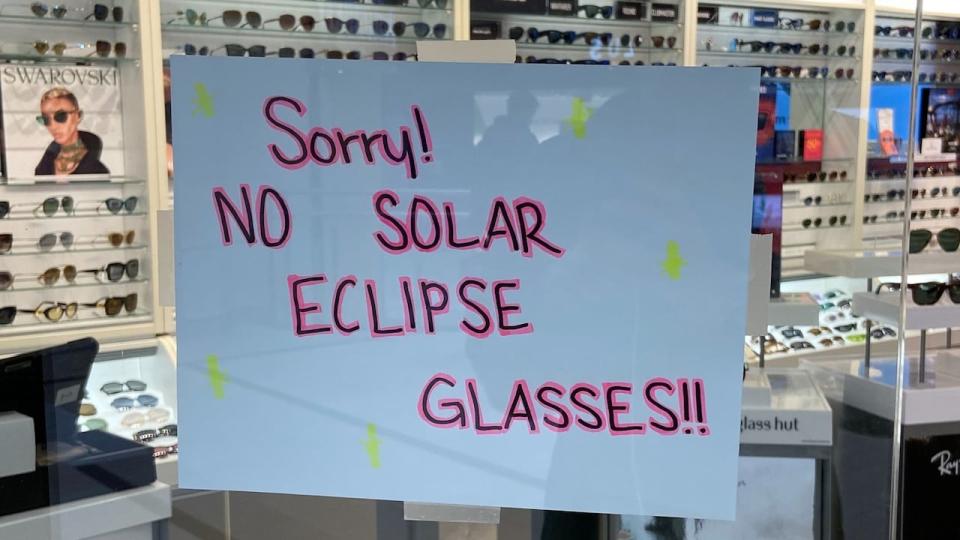
Eclipse glasses were highly coveted leading up to the event. That popularity led Sunglass Hut in Fredericton to put up this sign telling customers they didn't stock them. (Lars Schwarz/CBC )
But now that the eclipse has come and gone, what will happen to the thousands of eclipse glasses in people's homes and vehicles?
For Blanco, that question occurred to her on Tuesday, at around three or four in the morning.
"I was like, 'What are we gonna do with the glasses?'"
Blanco, who founded the non-profit organization Queens of Heart, which helps single parents with food and support, said she immediately started looking online to see if there was a way to donate them.

Diani Blanco said on Tuesday morning she woke up wondering what to do with her family's used eclipse glasses. Now, she's collecting them to donate. (Submitted by Diani Blanco)
That was when she came upon Astronomers Without Borders, a global organization based in California.
Astronomers Without Borders has been handing out eclipse glasses for well over a decade, said communications manager and science broadcaster Andrew Fazekas, but in 2017, it started a new recycling program.
After the 2017 total solar eclipse, Fazekas said Astronomers Without Borders collected three million pairs of eclipse glasses. The organization vetted the glasses and ended up distributing more than 300,000 of them around the world, particularly to under-served communities and schools in the path of future eclipses.
Fazekas said that the project was so successful they are redoing it this year.
In six months' time, he said, the organization hopes to send some glasses to the southern tip of South America, which will fall in the path of an annular eclipse in October.
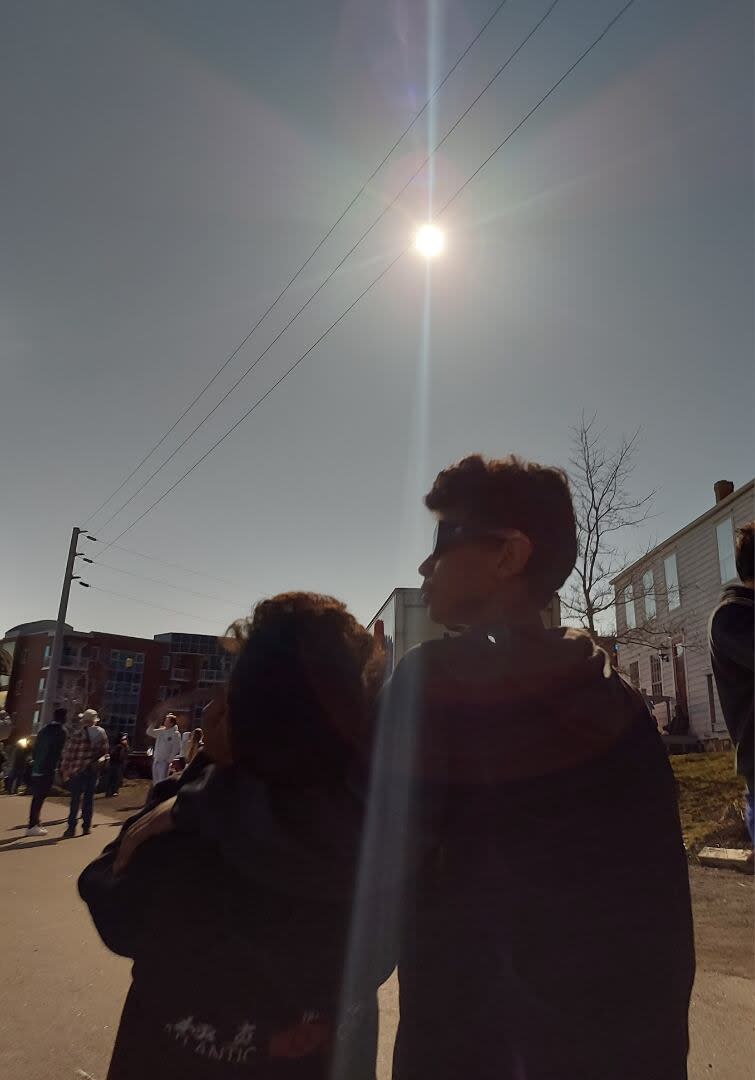
Blanco watched the solar eclipse with her family. Pictured are her sons, Nikko, 8, and EJ, 11, watching the event with their eclipse glasses. (Submitted by Diani Blanco)
An annular solar eclipse occurs when the moon goes in front of the sun, but doesn't quite cover it entirely, leaving an annulus or ring.
This type of eclipse is sometimes called a "ring of fire" because the sun can still be seen around the disc of the moon.
Fazekas said there are also partial eclipses that happen around the world, so glasses are needed for those, too.
But before distributing the glasses, Astronomers Without Borders needs to ensure the glasses don't have any punctures or scratches and that they are not fake.
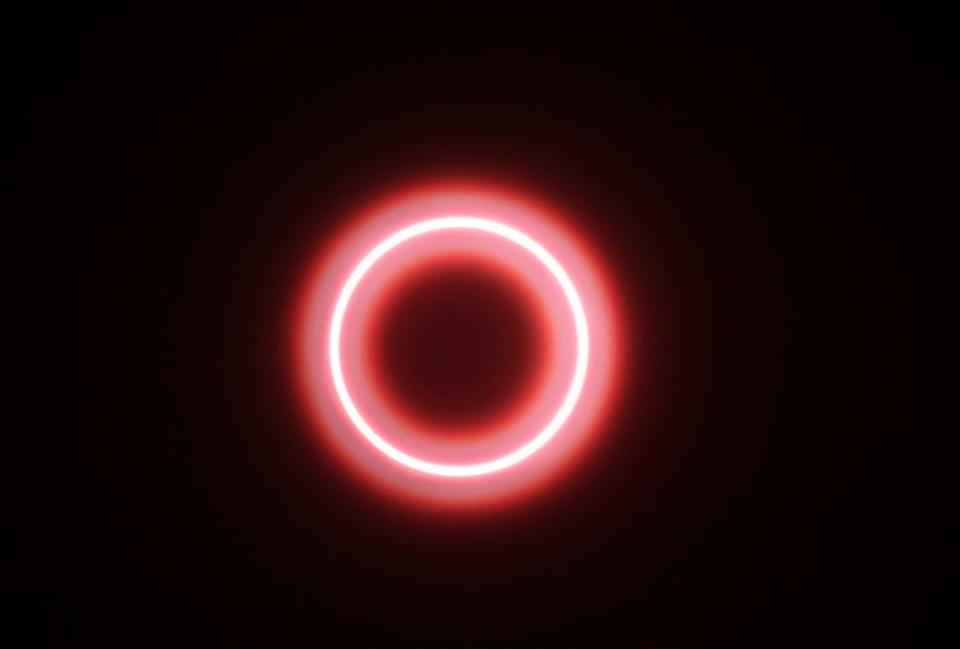
An annular solar eclipse is seen though safety glass from Siak, Riau province, Indonesia, in 2019. This type of eclipse is often referred to as the 'ring of fire.' (Rifka Majjid/The Associated Press)
He said before donating your glasses, people can pre-vet them by looking for any damage and by looking for a manufacturer's name and address and the ISO certification number.
If a person notices damage to their glasses, the cardboard frames could also be recycled. But the black polymer lenses would need to be disposed of.
Those collecting glasses for Astronomers Without Borders may also have to vet the glasses.
That's the case for Shaun Cunningham of Sackville, who says his involvement quickly snowballed.
He is in the process of becoming a collection location for Astronomers Without Borders and asked a local bookstore, Tidewater Books, and a couple of schools to collect used glasses for him.
"Our kids have left home so their rooms are going to become, suddenly, storage places for eclipse glasses," said Cunningham.
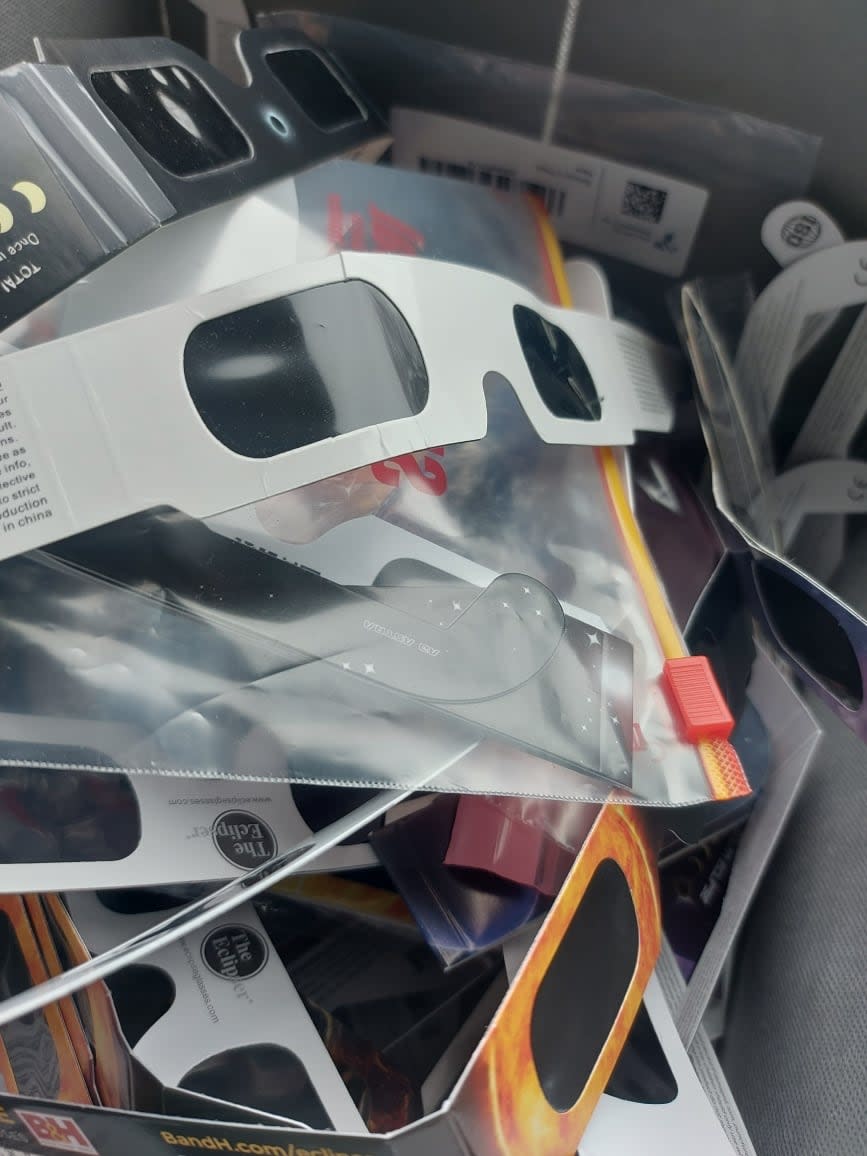
Eclipse glasses can be recycled, but only the cardboard frames. The plastic lenses must be discarded. (Submitted by Diani Blanco)
He said he has no idea how many glasses he will end up being responsible for, but he'll see how it goes at first before deciding if he'll need to recruit help.
And although the process of collecting, vetting and storing potentially thousands of eclipse glasses is a huge undertaking, Cunningham said he thinks it is a worthwhile project if it means that people around the world will get to experience an eclipse.
"I saw the total eclipse, like many people, and one of my first thoughts was, 'Everybody in the world needs to see this, one time, somehow.'"


